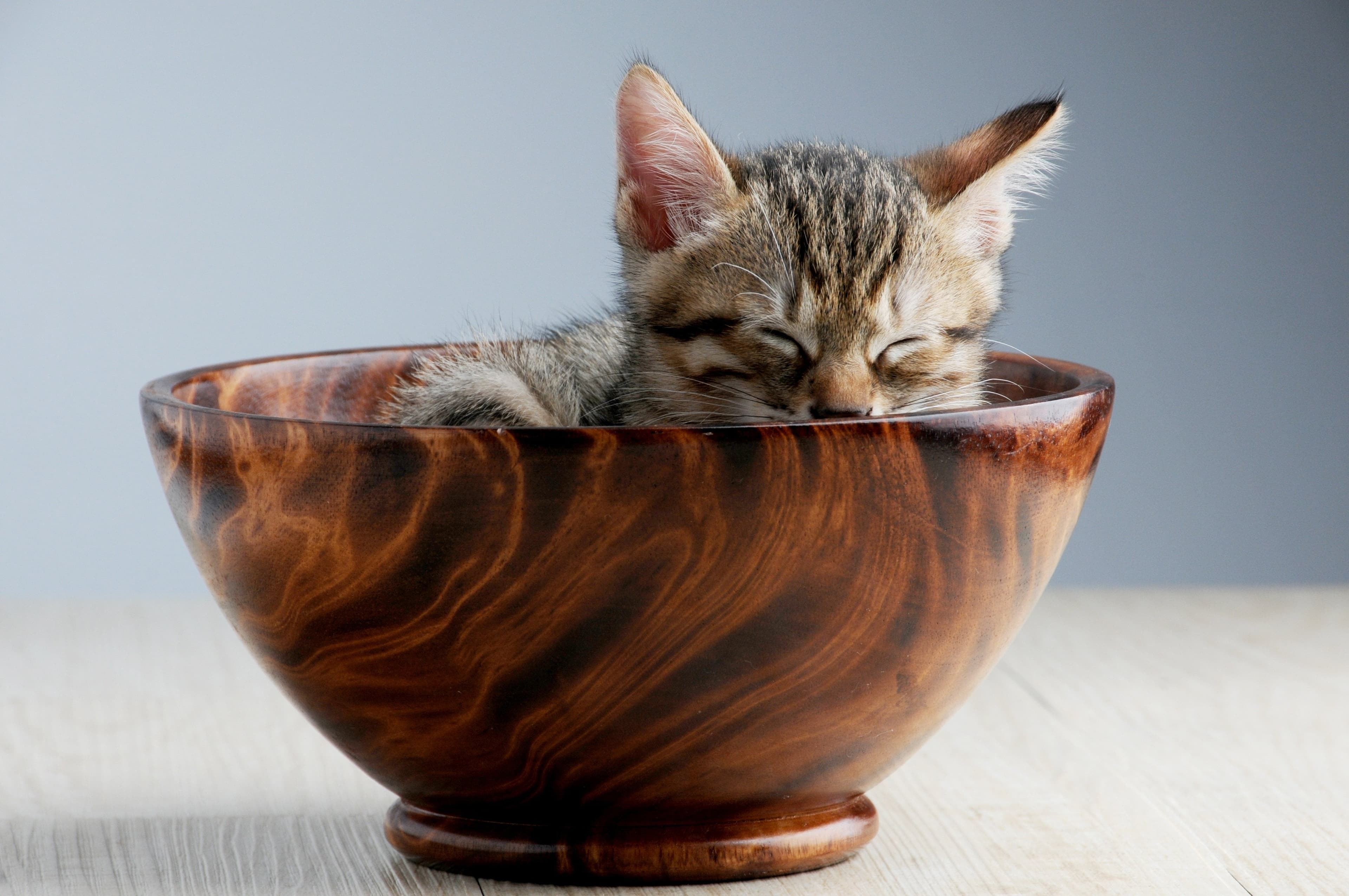Sleep is a naturally recurring state of body and mind, characterized by altered consciousness, limited sensory activity, inhibited voluntary muscle activity and reduced interactions with surroundings (NIH, 2018). While humans typically spend one-third of their time sleeping, cats often spend more than half of the day snoozing their troubles away. This qualifies our furriends as one of the sleepiest animals out there! But, how do cats sleep?

How do cats sleep?
"Guilt isn't in cat vocabulary. They never suffer remorse for eating too much, sleeping too long or hogging the warmest cushion in the house. They welcome every pleasurable moment as it unravels and savor it to the full until a butterfly or falling leaf diverts their attention." - Helen Brown
Sleep serves an important function in all animals. While the purpose of sleep remains a mystery, it has been associated with the ability to learn and consolidate memories (Vorster & Born, 2015). It has also been concluded that different animals experience distinct sleep patterns and positioning, conditioned by their lifestyles and survival mechanisms.
In efforts to gain a better understanding of feline sleeping needs and preferences, we turned to the Tuck team for advice. Tuck aims to educate people about the importance of sleep, sleep hygiene, health, and wellness. In light of this, they created special guides for pet owners, educating them on how their pets, just like us, require an appropriate amount of high-quality sleep. Here is what we learned from their feline sleep guide!
About the feline sleep pattern
Cats typically sleep anywhere from 12 to 16 hours a day. This is, however, highly influenced by their health status, lifestyle and age. Kittens naturally need more sleep, sleeping up to 20 hours a day. Older cats also sleep a lot more than they do at the peak of their youth, particularly if they have certain health issues such as arthritis.
Furthermore, cats who are overweight and less active also tend to spend more time in the sack. Note: Excessive sleepiness or lethargy shortly after a cat wakes up could be an indication of certain health conditions (i.e. hyperthyroidism or anemia). If you notice such behavior in your cat's sleeping habits, please consult with your veterinarian as soon as possible.
Aside from snoozing the whole day away, you may have noticed that your cat tends to be wide awake at night. Interestingly enough, however, cats are not actually nocturnal. Cats are crepuscular animals, meaning they are most active during the hours of dawn and dusk. This is a trait they inherited from their wild ancestors, who instinctively hunt prey in the twilight hours. However, cats often adjust their sleeping schedule to fit our daily activities. They tend to sleep more when we're away and less when we're home.

How do cats sleep?
Do cats dream?
Cats, like many animals, experience very complex dreams while sleeping. They retain and recall long sequences of events. You can recognize a dreaming kitty by rapid, uncontrolled facial, whisker, limb, and abdominal movements. This phase of sleep is called REM (rapid eye movement) sleep. According to Tuck's research, cats spend about 6 minutes in REM sleep, as opposed to humans who spend between 90 to 120 minutes in REM sleep per night.
While they do experience dreams, most of the time, cats sleep in a form of light sleep. In this state, while resting they are still on alert, ready to detect and escape any threat that comes their way. They are even able to sleep in upright or sitting positions. How meowical is that?

How do cats sleep?
Tuck's tips to improving your cat's sleep
Just like us, cats need high-quality sleep in order to remain at the top of their game. Their sleep, however, can sometimes interfere with our sleep. What can you do? Here is what Tuck recommends!
1. Feed your cat a healthy diet. A diet rich in high-quality nutrients will ensure your cat to be more energetic and frisky.
2. Give your cat plenty of playtime. A cat that is engaged in playful activities throughout the day is more likely to spend the night sleeping. You can also provide them with some sort of entertainment to keep them engaged during the night and prevent them from waking you up.
3. Make a firm decision about inviting your cat into your bed. As territorial as our cats are, most of us let them occupy our beds. But before you do, remember, they're not leaving without a fight. Is your bed big enough for the both of you?
4. Do not give in to your cat's pawing. If you want your cat to stop waking you up during the night, be persistent in ignoring them and don't give in to playing with them.
5. Feed your cat at night. Cats tend to sleep better after eating. Maybe you can schedule their feasts at night in an effort to motivate them to sleep afterward.

How do cats sleep?
Sources and further reading:
1. Tuck (2018). How Much Do Cats Sleep?
2. Tuck (2018). How Do Animals Sleep?
3. National Institute of Neurological Disorders and Stroke (NIH). (2018). Brain Basics: Understanding Sleep.
4. Vorster AP, Born J (2015). Sleep and memory in mammals, birds and invertebrates. Elsevier: 103-119.



